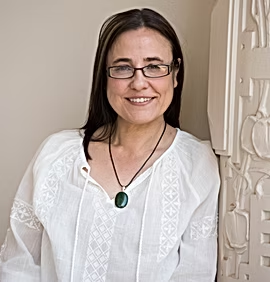Sacred shortcuts: the dangerous allure of spiritual bypassing
- May 25, 2025
- 4 min read
Updated: Jul 24, 2025
I feel that this blog is now necessary because I've witnessed too much quiet suffering and confusion, including my own in those early spiritual years, people I've walked alongside as both Counsellor and seeker, carrying shame about their struggles, convinced they're somehow "failing" spiritually. I've watched beautiful souls get tangled up in teachings that whisper "just transcend it" instead of doing the necessary work of actually healing. Yes, speaking these truths might ruffle feathers or stir up controversy, but I can't stay silent when I see practices that keep us stuck rather than set us free. This conversation matters too much.

So that is Spiritual Bypassing?
Spiritual bypassing, a term first coined by psychologist John Welwood (1984), describes the use of spiritual ideas or practices to sidestep, suppress, or avoid facing unresolved emotional wounds, psychological pain, and the messiness of real life. It’s the tendency to “rise above” rather than work through difficult emotions or experiences, often in the name of positivity or transcendence. I speak my truth through my heart, grounded in both lived experience and psychological research, because I believe that only by naming these patterns can we move toward authentic healing.
Signs and Symptoms of Spiritual Bypassing
Emotional numbing or repression: avoiding pain by focusing only on “higher” states or detaching from feelings.
Overemphasis on positivity: insisting on “love and light” while denying anger, grief, or sadness.
Anger-phobia: fear or denial of anger, seeing it as unspiritual.
Exaggerated detachment: disconnection from relationships or daily life, mistaking aloofness for enlightenment.
Blind compassion: tolerating harmful behaviour in the name of forgiveness or unconditional love.
Weak boundaries: difficulty saying no or protecting oneself, confusing self-sacrifice with spiritual virtue.
Judging “negativity”: harsh self-judgment for having difficult emotions or a “shadow side”.
Spiritual superiority: believing oneself more evolved or awakened than others.
Avoidance of responsibility: attributing problems to fate, karma, or divine will instead of taking personal action.
Why do people choose Spiritual Bypassing?
Spiritual bypassing often arises as a coping strategy. For many, spirituality offers comfort and meaning, especially in times of distress. When emotional pain or trauma feels overwhelming, spiritual beliefs can become a shield, protecting the psyche from discomfort by reframing suffering as a test, lesson, or illusion. This avoidance is not always conscious. People may genuinely believe they are doing the “right” thing by focusing on the positive or “letting go.” In spiritual communities, these patterns can be reinforced by group norms or teachings that equate suffering with failure or lack of faith.
Psychological research has identified two primary forms:
Spiritualisation: attributing excessive spiritual meaning to events, using magical thinking or expecting divine intervention rather than taking action.
Psychological avoidance: using spiritual practices to escape from, rather than process, difficult emotions or personal responsibility.
A holistic Counsellor's perspective
As a Counsellor, I have witnessed spiritual bypassing first-hand in both individual clients and within new age circles. Many clients arrive feeling confused or ashamed because, despite years of meditation, affirmations, or “manifesting,” their core wounds persist. In some new age groups, there’s immense pressure to maintain a façade of perpetual positivity, leading members to suppress grief, anger, or trauma for fear of being seen as “unenlightened.” I’ve seen how this avoidance can deepen isolation and self-doubt, making genuine healing more elusive. My role often involves gently guiding clients to embrace their entire emotional reality, reminding them that genuine growth comes from integrating, not escaping, all aspects of themselves.
Disturbingly, some spiritual groups and organisations use guilt or shame as a deliberate tool to break individuals down, exerting control rather than fostering healing. This tactic makes people dependent on the group’s services and offerings, keeping them submissive and reliant. Beware of any group or leader that uses shame, guilt, or fear to manipulate or control you under the guise of spiritual growth.
The cost of avoidance
While temporary avoidance can help someone survive acute stress, chronic spiritual bypassing blocks genuine healing and growth. It can lead to anxiety, shame, emotional confusion, codependence, and even spiritual narcissism. Relationships suffer, pain festers, and the individual’s development stalls, leaving the wounds they sought to escape unhealed.
An invitation to reflect
Spiritual bypassing is a seductive trap. It promises relief but delivers stagnation. True healing requires courage to sit with pain, to face the shadow, and to integrate all parts of ourselves. If you’re wondering whether you might be spiritually bypassing, consider these reflective questions:
1. Do you use spiritual practices or beliefs to avoid feeling difficult emotions like anger, sadness, or fear?
2. When faced with conflict or pain, do you rush to forgiveness or positivity, rather than acknowledging and processing your true feelings?
3. Do you judge yourself or others for experiencing “negative” emotions, believing they are a sign of spiritual failure?
4. Have you ever used spiritual explanations to avoid taking responsibility or making necessary changes in your life?
5. Do you feel pressure to appear calm, enlightened, or positive, even when you're struggling inside?
Are you using manifestation techniques to avoid doing the inner work?
Answering these questions honestly can be the first step toward deeper self-awareness and authentic healing. Remember, personal responsibility is not about blame; it’s about reclaiming your power to face, feel, and heal. Only then can spirituality become a force for genuine transformation, not just a beautiful disguise for our deepest wounds.


Carmela Pollock is based in Mornington, Victoria, where she operates a successful private practice offering dynamic, holistic services, including individual counselling and group workshops. She brings heart energy to every service, assisting clients in discovering their blueprint by guiding them to explore their inner world, dismantle unhelpful patterns, and build a new, values-based foundation. She inspires clients to reach higher and find self-inspiration, supporting them until they confidently walk their journey alone. If you want to know more about Carmela's services, visit her website.




Comments